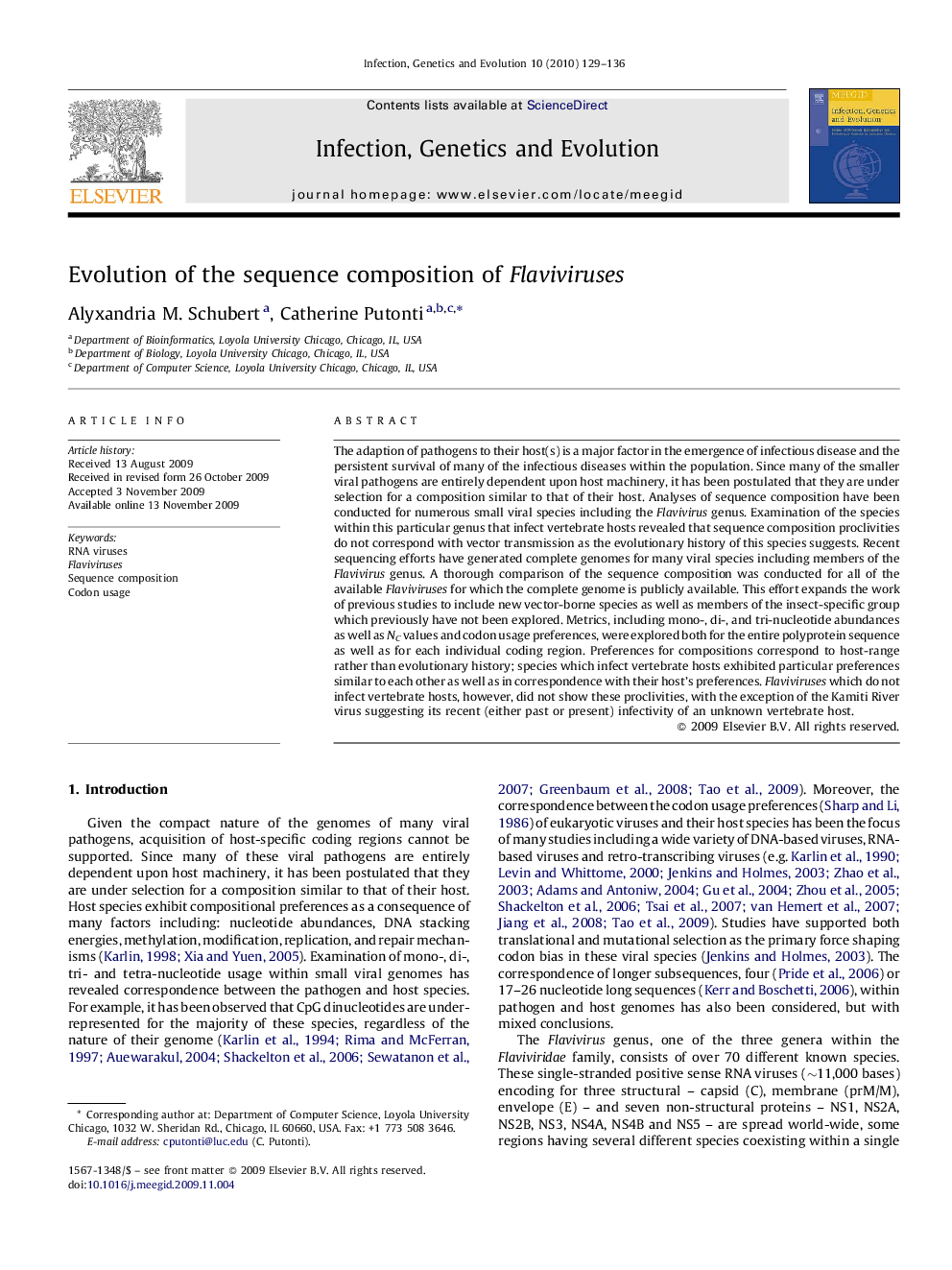| Article ID | Journal | Published Year | Pages | File Type |
|---|---|---|---|---|
| 2823428 | Infection, Genetics and Evolution | 2010 | 8 Pages |
The adaption of pathogens to their host(s) is a major factor in the emergence of infectious disease and the persistent survival of many of the infectious diseases within the population. Since many of the smaller viral pathogens are entirely dependent upon host machinery, it has been postulated that they are under selection for a composition similar to that of their host. Analyses of sequence composition have been conducted for numerous small viral species including the Flavivirus genus. Examination of the species within this particular genus that infect vertebrate hosts revealed that sequence composition proclivities do not correspond with vector transmission as the evolutionary history of this species suggests. Recent sequencing efforts have generated complete genomes for many viral species including members of the Flavivirus genus. A thorough comparison of the sequence composition was conducted for all of the available Flaviviruses for which the complete genome is publicly available. This effort expands the work of previous studies to include new vector-borne species as well as members of the insect-specific group which previously have not been explored. Metrics, including mono-, di-, and tri-nucleotide abundances as well as NC values and codon usage preferences, were explored both for the entire polyprotein sequence as well as for each individual coding region. Preferences for compositions correspond to host-range rather than evolutionary history; species which infect vertebrate hosts exhibited particular preferences similar to each other as well as in correspondence with their host's preferences. Flaviviruses which do not infect vertebrate hosts, however, did not show these proclivities, with the exception of the Kamiti River virus suggesting its recent (either past or present) infectivity of an unknown vertebrate host.
